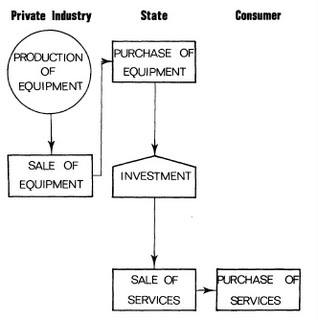EU-bookshop: elektronischer Zugang nun auch zu alten Veröffentlichungen
 "Amt für amtliche Veröffentlichungen der Europäischen Gemeinschaften" war eine bemerkenswerte Bezeichnung für eine Gemeinschaftseinrichtung, die zwar auch das Amtsblatt, aber daneben zahlreiche weitere Veröffentlichungen, von Studien bis zu massenhaft verteilten Werbebroschüren, herausgab. Seit 1. Juli dieses Jahres heißt die Einrichtung nun etwas schlichter "Amt für Veröffentlichungen der Europäischen Union" (Beschluss 2009/496/EG, Euratom). Seit gestern zeigt sich die Website des Amts in neuem Design, und auch das Angebot wurde deutlich erweitert: nicht mehr nur die aktuellen Veröffentlichungen, sondern alle seit 1952 veröffentlichten Dokumente (laut Pressemitteilung 12 Millionen Seiten) sind nun kostenlos online als pdf verfügbar.
"Amt für amtliche Veröffentlichungen der Europäischen Gemeinschaften" war eine bemerkenswerte Bezeichnung für eine Gemeinschaftseinrichtung, die zwar auch das Amtsblatt, aber daneben zahlreiche weitere Veröffentlichungen, von Studien bis zu massenhaft verteilten Werbebroschüren, herausgab. Seit 1. Juli dieses Jahres heißt die Einrichtung nun etwas schlichter "Amt für Veröffentlichungen der Europäischen Union" (Beschluss 2009/496/EG, Euratom). Seit gestern zeigt sich die Website des Amts in neuem Design, und auch das Angebot wurde deutlich erweitert: nicht mehr nur die aktuellen Veröffentlichungen, sondern alle seit 1952 veröffentlichten Dokumente (laut Pressemitteilung 12 Millionen Seiten) sind nun kostenlos online als pdf verfügbar.Die digitale Bibliothek im EU-bookshop ist eine wahre Fundgrube, auch um rechtliche bzw. regulatorische Entwicklungen nachzuvollziehen, für die nicht nur die verbindlichen Rechtstexte (die über EUR-LEX schon länger zugänglich sind) relevant sind, sondern auch diverse Weiß- und Grünbücher, Strategiepapiere und Studien, die bisher nur in Papierform vorlagen (mein ganz privater Vorteil daraus ist, dass einiges an altem Papier, das ich bisher nicht wegwerfen wollte, zum Altpapier kommen kann und durch digitale Versionen ersetzt wird).
Nur als Beispiel aus dem Fachbereich dieses Blogs verweise ich auf die Studie "The EEC Telecommunications Industry - Competition, Concentration & Competitiveness" von Gareth Lockley aus dem Jahr 1983, aus der das obige Schaubild stammt. Zum Zeitpunkt der Studie war die Situation in der gesamten EU noch so: "The State, through some legal arrangement like a statutory monopoly, operates the telephone networks. To do this it purchases equipment from private industry." (p. 101) Lockley beschreibt knapp die Theorie dazu:
"The condition of the single supplier of services (as in the US) is explained by the concepts of the 'natural monopoly' and the 'public interest'. A natural monopoly rests on the assumption of declining marginal costs - that is as output expands each additional unit can be supplied at a lower cost then proceeding units. It is thus a technological assumption. The conclusion to be drawn from this condition is that two firms would supply goods or services more expensively than one. There is a natural tendency towards monopoly. This being the case a private monopoly would exploit consumers whilst a regulated or public monopoly would operate in the public interest. However it is not clear whether this reasoning holds where the monopolist makes many products or services as is the case now in telecommunications .
There are further explenations of the monopoly, the most important being the necessity of 'universality'. This is a political objective concerned with integrating all the outposts of a country through the communications system. But there is also an economic aspect of universality. Clearly
the value to any individual subscriber to a network and thereby the price he is willing to pay is related to the total number of subscribers. However providing a new telephone line to a premises not previously served is very expensive and if these costs are borne by the subscriber the size of the network will be limited. All telephone operators charge connection fees below direct costs in order to expand the number of subscribers. However, as more new subscribers are connected the telephone service operator experiences increasing losses. Telecommunications agencies can only make up this shortfall by charging above unit costs for their subsequent services but such conduct is only possible where the telecommunications agency holds a monopoly of service provision." (pp. 101-104)
Weitere Lesehinweise: Telecommunications in Europe (1990, von Herbert Ungerer, der von 1975 bis 1999 in der Kommission unmittelbar mit Telekomsachen befasst war und erst vor kurzem als stv. Generaldirektor für staatliche Behilfen in Pension gegangen ist) und European Telecommunication Organisations (1988), darin auch ein Bericht über die österreichische Situation von Johannes M. Bauer (nun Professor an der Michigan State University) und Michael Latzer (nun Professor am IPMZ in Zürich), mit einer nicht unrealistischen, fast zeitlosen Einschätzung: "A reorganisation of the PTT will create the open resistance of the well-organised postal workers. To avoid this additional conflict, the government probably will postpone any attempts to develop new telecommunications concepts." (S. 83; Hervorhebung hinzugefügt)
Labels: Telekomrecht
0 Comments:
Post a Comment
Links to this post:
Create a Link
<< Home